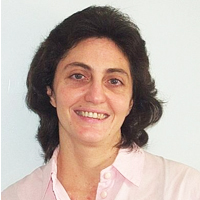Iodine status and thyroid parameters of pregnant women living in an iodine sufficient area
Published on: 3rd February, 2021
OCLC Number/Unique Identifier: 8980371650
During the last few decades painstaking efforts have been made to eliminate iodine deficiency throughout the world. Todays in regions where dietary iodine intake is adequate or borderline, the main focus is increasing dietary iodine supply in the target population during pregnancy and the first years of life.
Objective: The aim of this study was to obtain longitudinal data on urinary iodine excretion and the changes of maternal thyroid parameters in two groups of healthy women with mild-to-moderate iodine deficiency and iodine sufficiency residing in an iodine replete area of Tehran capital city of IR Iran, for more than one decade.
Research designs and methods: The present study is part of a cohort study, investigating the relative influences of iodine intake on thyroid size and function of mothers and their infants during and after pregnancy. A total of 500 pregnant women enrolled from two mother-child health care centers and was divided into group I, with median urinary iodine excretion (MUIE) < 150 µg/L, and group II with MUIE ≥ 150 µg/L. Sonographic thyroid volume measurement, urinary iodine excretion and thyroid function tests were measured sequentially in all pregnant women during the three trimesters (T) of pregnancy.
Results: The mean ± SD age of the participants was 25.1 ± 5.1 years. The MUIE in group I and II in the first, second and third trimester were 123 and 250 µg/L, 127 and 166 µg/L, 120 and 150 µg/L, respectively. The MUIE in the third trimester of pregnancy in group I did not differ significantly from the values in the first and second trimesters (p = 0.67), but it did decline significantly in group II (p < 0.001). The median thyroid volume of subjects, in the first, second and third trimesters were 7.8, 8.2 and 8.1 ml in group I and 7.5, 8.0 and 8.4 ml in group II, respectively. No difference in thyroid volume was found between two groups in each of the three trimesters of pregnancy (p > 0.05). The mean (± SD) TSH concentration of subjects in first, second and third trimester was 2.3(± 2.6), 2.1(± 1.8), 2.3(± 1.7) mIU/L in group I and 2.1(± 3.1), 2.1(± 1.8) and 2.0(± 1.3) mIU/L in group II, respectively. The trend of TSH rising in group I was 26.7% and in group II it was 13.3%. The mean TSH value in three trimesters did not differ significantly in either groups (p > 0.05). The mean (± SD) total T4 concentrations of subjects in first, second and third trimesters were 13.2(± 3.4), 13.8(± 3.3), 13.0(± 2.9) µg/dl in group I and 13.1(± 3.2), 13.7(± 2.9), 13.4(± 3.2) µg/dl in group II, respectively. The mean total T4 value in three trimesters did not differ significantly in either groups (p > 0.05). There was no correlation between the thyroid volume and three observed parameters (UIE, total T4 and TSH) during the pregnancy in either groups.
Conclusion: Even in areas with well-established universal salt iodization program, pregnancy could be a risk of having iodine deficiency and systematic dietary fortification needs to be implemented in this vulnerable group.
Mild to moderate iodine deficiency in pregnancy: A matter of debate
Published on: 12th March, 2021
OCLC Number/Unique Identifier: 8980359493
During the last few decades painstaking efforts have been made to eliminate iodine deficiency through the world. Nowadays in regions where dietary iodine intake is adequate or borderline, the main focus is increasing dietary iodine supply in the target population during pregnancy and the first years of life. Severe iodine deficiency during pregnancy increases the risk of irreversible brain damage, intellectual disability, neurologic abnormalities, stunted growth, increased pregnancy loss, infant mortality, impairments in child development and cretinism. The potential effects of mild-to-moderate iodine deficiency are debated. Results from animal studies and observational human studies indicate that maternal mild-to-moderate iodine deficiency disturbs thyroid function in pregnancy and it also may affects fetal neurodevelopment. The effect of supplementation of iodine on thyroid function of pregnant women and their newborn, neurodevelopment of infants and cognitive performance of children have been investigated using iodine nutrition in pregnancy, based on median urinary iodine concentration. However they have found conflicting results regarding the benefits or harms of iodine supplementation in pregnancy. Although many epidemiological, interventional and clinical studies have supported the association between thyroid function in pregnant women and later psychomotor and mental development of their children, the effect of iodine supplementation in pregnant women on neurodevelopment of children is inconclusive. Even in areas with well-established universal salt iodization program, pregnancy could be at risk of having iodine deficiency and despite WHO/ICCIDD/UNICEF recommendation which believe that dietary iodine fortification during pregnancy depends primarily on the extent of pre-existing iodine deprivation, systematic dietary fortification needs to be implemented in this vulnerable group. However, iodine supplementation of mildly iodine deficient pregnant women may not have beneficial effects in their thyroid function or neurodevelopment of their children.
















